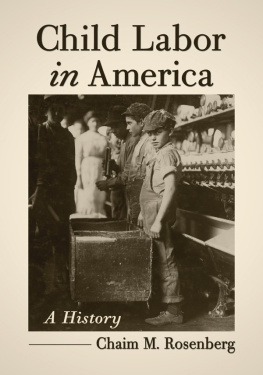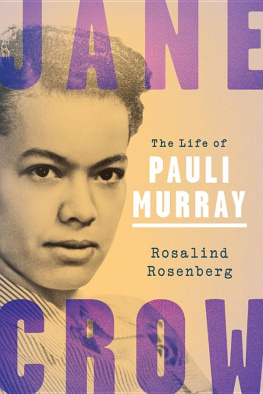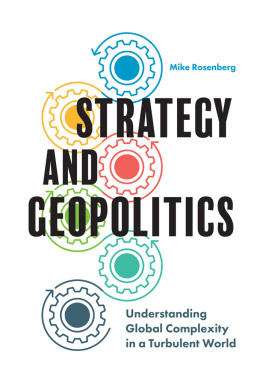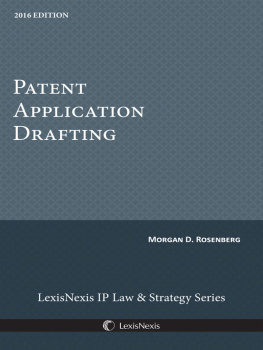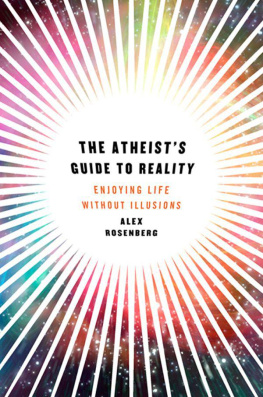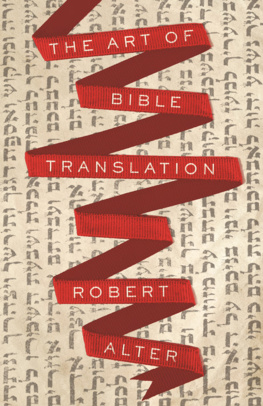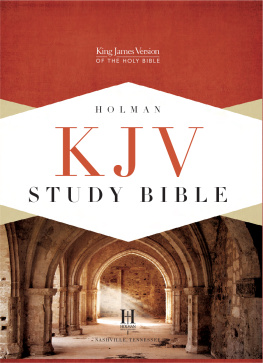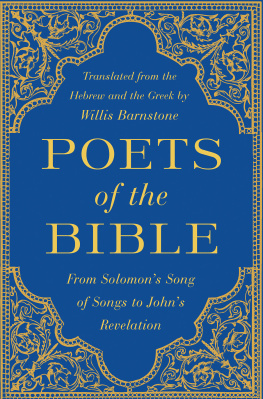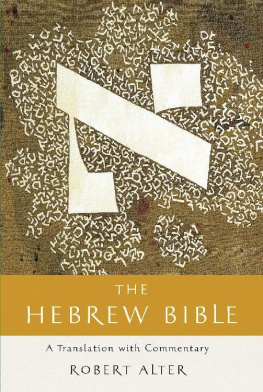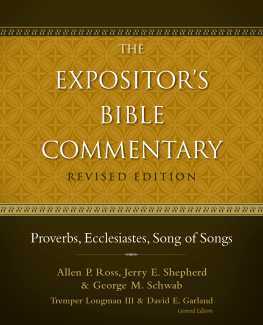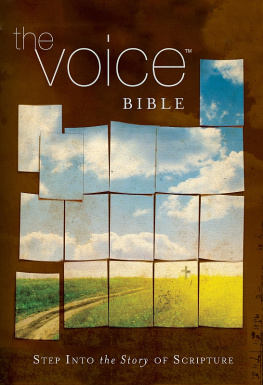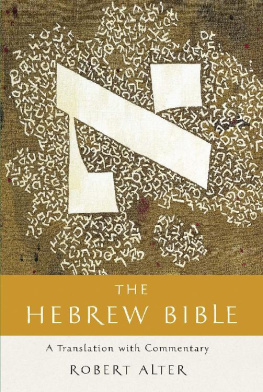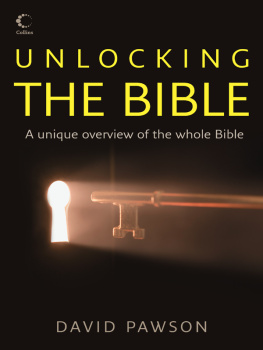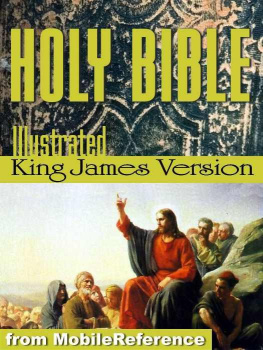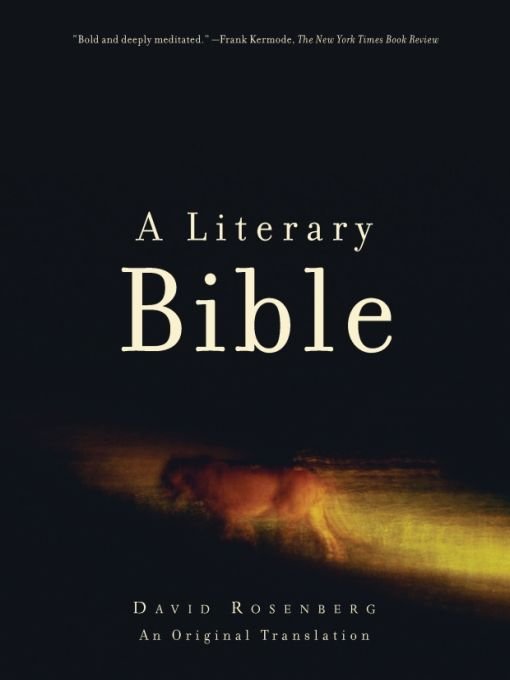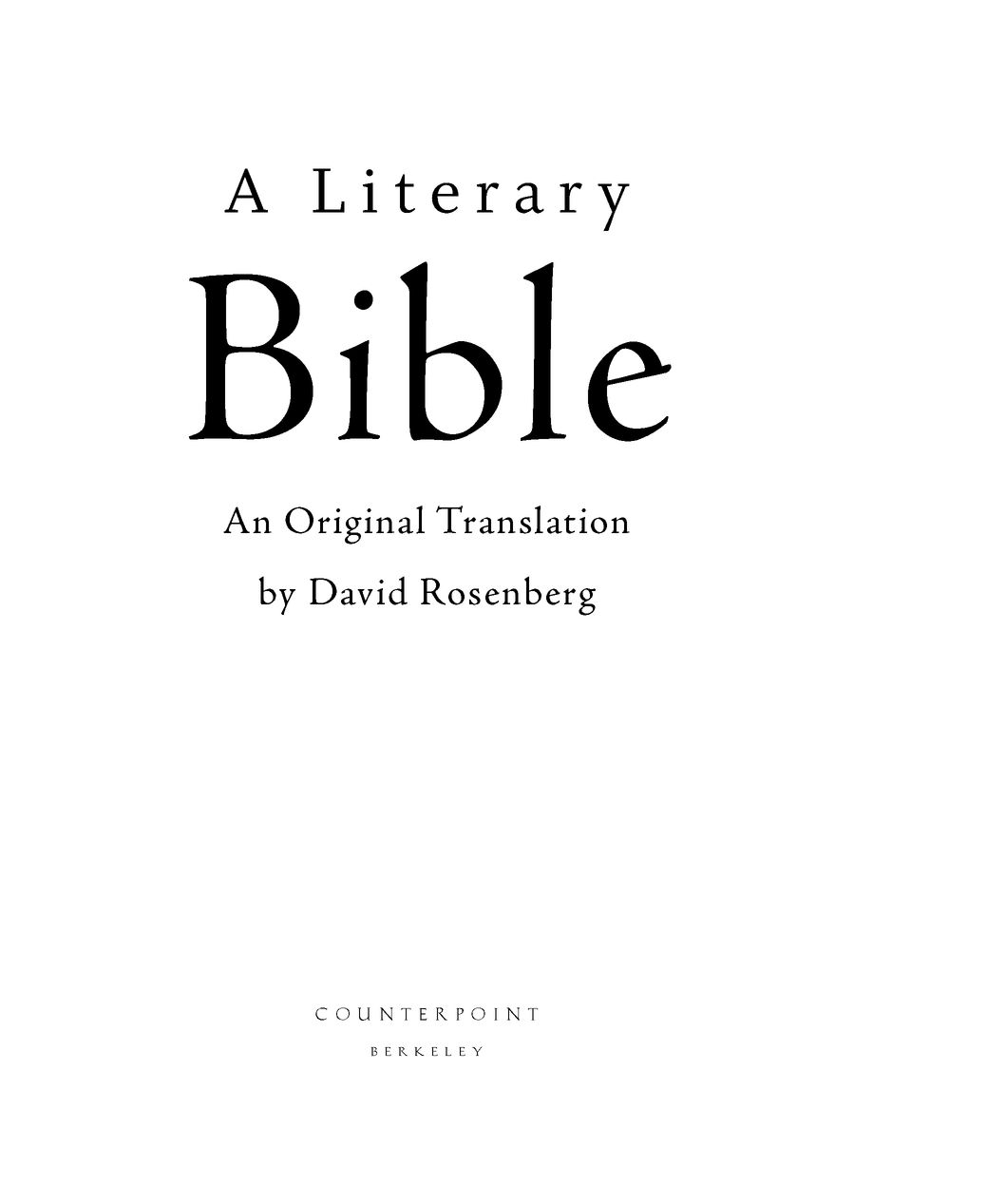Table of Contents
Other Books by David Rosenberg
POETRY
Excellent Articles of Japan
Disappearing Horses
Headlights
Night School
Paris & London
Leavin America
A Star in my Hair
Frontal
The Necessity of Poetry
The Lost Book of Paradise
LITERARY TRANSLATION
Some Psalms
Blues of the Sky
Job Speaks
Lightworks
The Book of J
A Poets Bible
JUDAICA
A Blazing Fountain
Chosen Days
Dreams of Being Eaten Alive
ESSAYS
Congregation (ed.)
Testimony (ed.)
The Movie that Changed My Life (ed.)
Communion (ed.)
Genesis As It Is Written (ed.)
See What You Think
BIOGRAPHY
The Book of David
Abraham
An Educated Man
BORN OF A LIONESS IS JUDAH.
Genesis
AND THE LION WILL EAT STRAW WITH THE OX.
Isaiah
for Rhonda,
lioness of reading
PREFACE
Its a commonplace of interfaith and multicultural dialogues today that you never know your own so well until you sympathetically understand anothers. Id take it further: you never know your secular culture well enough until youve understood its counter-culture text of religion. For us, it comes down to the Bible, yet Ive rarely found its literary depth adequately conveyed to the secular reader. There is plenty of discussion about what makes a Jew or a Christian, an atheist or an agnostic, but rarely are the arguments traced back to their historical origin in the writers of the Bible. Instead, we have the latest talking points about DNA and theology. For uncanny answers, we need to envision the aspirations, inspirations, and intellectual conflicts of the biblical writersto see them within their ancient Hebraic culture (and for the early writers of the New Testament, within their Jewish and Judeo-Greek culture) well before religious tradition edited them into a sacred canon.
In the Epilogue (How the Bible Came About) and Afterword (How This Book Came About), I pose some of these answers. For readers absorbed in the literary world, and used to the absence of a beginning, middle, and end, it wont hurt to start with the Afterword. It briefly addresses where I come from as a writer who reads the Bible side by side with the crucial contemporary writers of our secular cultureAmerican Ashbery or South American Bolao, just for instance, or Michael Ondaatje and B.P. Nichol (simply to name two major Canadian authors). If you read these and other searching writers today, the prophetic question of where our culture is headed may concern you more than where it originatedbut youll still be anchored in the Bible, when time gained the prophetic dimension that is our bedrock. In the Afterword, I ask: How does one become a serious writer within a culture that is lost in time such as ours, uncertain of a cosmic destiny, anchored in space on a ball of reason that may or may not be unmoored?
For most readers, however, from the novice to the Bible scholar, the Epilogue will provide a guide and raison detre for this book. It may also inform you of why its critical to grasp the failings in modern Bible translationa type of failure that may reflect larger confusions in our secular culture.
The popular translations intend you to forget you are reading a translation; they substitute a conventional, novel-like narrative. But rather than a novel, which has recourse to three tenses, think of the great classic films (not Bible movies), which are limited to a complex present tensejust as was the most ancient biblical Hebrew, in its impression. Although more profound, the Hebrew Bible is full of action and voices, like an epic film. And to recreate this, a translation must become self-aware: it needs the translators sensibility and experience, not simply a high-concept English style.
And yet, how not to awkwardly intrude on such a great complement of literary works as make up the core of the Hebrew Bible? I couldnt stop to address this question during many years of slow, absorbing work. But after more than thirty years of it now, I can suggest that only by writing through the changing stages of ones life do the centuries of original biblical composition resolve themselves into camera focus. Such transparency may allow us to read the origin of the Bible in the company of its original intended audience, as I suggest in a brief introduction to each book.
If you are encountering the Bible for the first time at the level of personal reading, its my wish that A Literary Bible will open the gate to a longer journey of historical and cultural inquiry. Of course, you can read it deadpan, as if it will tell you whether you approve of God and his writers. But that would be like disapproving a great film, for instance Kubricks 2001: A Space Odyssey, while remaining ignorant of its director and its cultural history of the space programs impending first walk on the moon. As Ive written in conclusion: The better part of my own life as an author of books and texts has been a journey toward discovering a lost writer. If the Bible turns out to be a lost book in your life, so much the better for considering afresh todays secular canon of writers and works of art. Yet the Bible is a deeply complex text, and its primitive passages are set in a sophisticated writers looking back, so its the wrong material for literal-minded comedians and artists, who are prone to react before they think.
My translations, whether they render the Bible as strange or strangely familiar, engage the ancient texts in contemporary terms. I do not seek to embellish or alter the originals, but mainly to restore the original experience of reading them. To that end, I have provided an appendix that identifies chapter and verse, allowing you to compare my version with any other English translation. It should not be a question of which is the better translation; mine is incomplete, to say the least. Yet what we still have to learn about the Bible, and especially the Hebrew Bible, is why it remains a crucial foundation of Western culture.
part 1
TELLING the torah
GENESIS
Genesis is the literary and cultural foundation for the Hebrew Bible. Its human drama begins in the Garden of Eden, and from there until the birth of the first Jew, Abraham, the historical sources drawn upon include literatures already classical in Abrahams day, most prominently Sumerian. The history of Jewish ancestors proceeds to the end of Genesis, where some are living in Egypt and where Joseph has risen to the highest government office.
The cosmic theater of Genesis allows YHWH (pronounced Yahweh in this primary source and mispronounced Jehovah in the King James translation) to interact with humans on a common stage, in person and through disguises, in disembodied speech and via angels. YHWH, in short, is always uncanny; and very often, so too are his human counterparts.
Genesis contains two major literary sourcesJ from the ninth century BCE in Jerusalem, and E from the eighth century BCE in Samariaand the minor source, P from the sixth century BCE in Jerusalem. J and E narrate roughly the same stories and histories, and have been interwoven in later times, along with P and fragments of other sources. One of the latter, which tells of Abraham as a warrior, is designated Xalthough it appears to be a translation from Akkadian, the language that Abraham would have spoken, and written close to his lifetime. I have translated this passage in particular because it belies the sour grapes scholarship that postdates the writings of J and E to the seventh century BCE, thereby throwing their historical accuracy into question.


